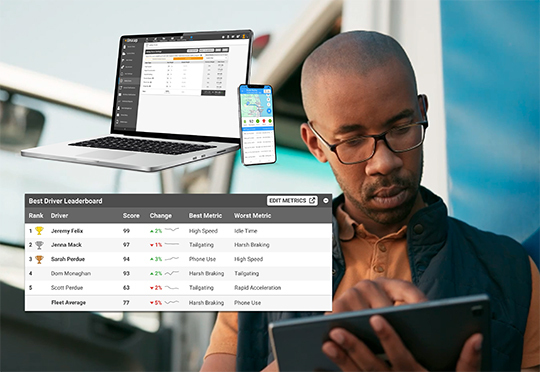
7 Tax Tips for Field Service Businesses
Service businesses often deal with fluctuating expenses and payroll complexities that make tax season somewhat less-than-straightforward. That’s a problem, since falling behind on filing and/or missing potential deductions can eat into your business’ yearly earnings — or worse, make your business a target for an extremely stressful audit.
A more proactive approach to tax management helps you:
- Reduce taxable income with eligible deductions
- Improve cash flow
- Avoid penalties and audits
- Keep accurate records that make scaling easier
For these reasons we found it prudent to compile a simple checklist for service business owners who prefer to avoid messy tax complications (i.e. all of them).
Smart tax tips for service businesses
1. Track all business expenses accurately. There’s no way around this one; your business needs a system in place to track expenses. That means mileage on company vehicles, new tools and software, branded swag for in-person events — every legitimate business expense, no matter how seemingly small (those small costs add up).
Meticulous tracking ensures you don’t leave money on the table, plus keeping/filing receipts from every expense shields you from audit complications.
2. Deduct vehicle and travel expenses. Many service businesses rely heavily on vehicles. Depending on your business setup, you may be able to deduct mileage, fuel, maintenance and even vehicle depreciation (in fact, if you’ve recently invested in new tools, vehicles, or equipment, there’s a good chance you can deduct the full purchase price in the year of the purchase under Section 179). A GPS tracker automates the bulk of this process by logging your mileage and fuel data for you, which (in addition to being a huge time-saver) essentially makes your mileage records audit-proof.
Don’t forget to stay compliant with the International Fuel Tax Agreement (IFTA) if you own or operate a commercial vehicle over 26,000 pounds that has at least three or more axles. IFTA lets you report and pay fuel taxes to your base state, no matter where you travel. It’s paid quarterly so be sure to plan accordingly.
3. Don’t forget home office deductions. If you manage scheduling, payroll, or dispatch from a dedicated home office, there’s a good chance you qualify for deductions on your rent and utilities.
4. Separate personal expenses from business finances. Using a dedicated business bank account and credit card goes a long way toward simplifying your expense tracking, and many credit cards designed for business usage come with some additional perks.
A dedicated business account and a card reserved strictly for work expenses simplifies your tax prep — and strengthens your credibility if the IRS ever questions your filings.
5. Be aware (and stay on top) of your quarterly taxes. Resist the temptation to put off your business’ estimated quarterly tax payments. The annual January tax-season scramble can be largely mitigated by simply keeping pace with these quarterly check-ins. Plus, this way you don’t suffer the shock of a year’s worth of taxes due all at once in the middle of winter.
6. Use technology to your advantage.
Accounting software, ELDs and tools like the GPS mileage trackers mentioned above (available here) can streamline a good portion of your tax prep and provide an accurate picture of your finances year-round.
7. Don’t be afraid to hire a tax professional. Even if you handle most finances in-house, a tax advisor who specializes in service businesses is your best shot at maximizing deductions and ensuring all that paperwork is sorted out properly.
Tax season checklist for service businesses
Use this checklist to keep your tax prep simple and stress-free:
- Gather income records (invoices, contracts, 1099s)
- Collect receipts and expense records (tools, uniforms, supplies, software)
- Log vehicle expenses or mileage reports
- Review and file quarterly IFTA reports (if your fleet meets the criteria and operates across state lines)
- Review payroll records and employee tax forms (W-2s, 1099s)
- Reconcile bank and credit card statements
- Organize home office expense records (if applicable)
- File or pay quarterly estimated taxes on time
- Review Section 179 opportunities for new purchases
- Schedule a review with a tax professional before filing
Skip the panic. Stay prepared.
Contrary to popular belief, filing taxes doesn’t have to be a total nightmare. Use automatic data logging tools, keep thorough records that allow you to max out your deductions and treat tax planning as a year-round habit — with the tips and checklist above, you’ll cruise through this next tax season and get back to managing your business without a hitch.



